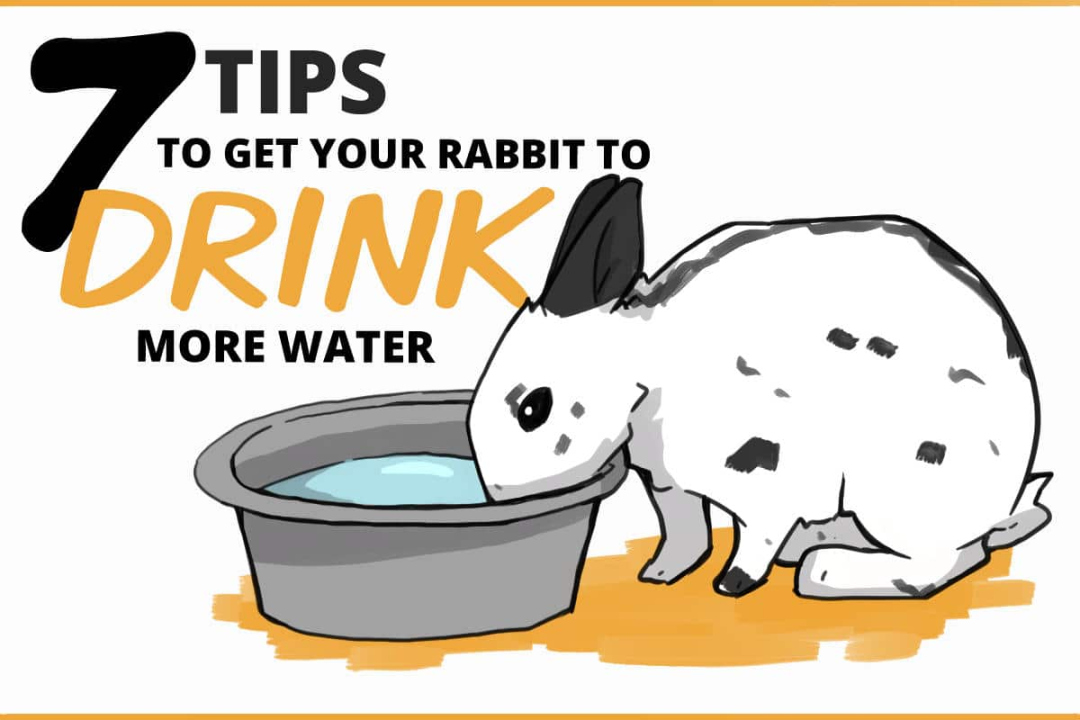Why is My Rabbit Not Drinking Water?
As a responsible rabbit owner, it can be concerning if you notice that your furry friend is not drinking enough water. Proper hydration is essential for a rabbit’s health and well-being, as water helps with digestion, regulates body temperature, and flushes out toxins. There are several reasons why your rabbit may not be drinking water, and it’s important to identify the cause and address it promptly. In this article, we will explore some common reasons why rabbits may refuse to drink water and provide helpful tips for encouraging them to stay hydrated.

1. Dental Problems
Rabbits have continuously growing teeth, and dental issues are common in these small animals. Overgrown teeth, dental infections, or malocclusion (misalignment of the teeth) can cause pain and discomfort, making it difficult for your rabbit to eat and drink properly. If your rabbit is not drinking water, it’s essential to check for signs of dental problems such as drooling, difficulty eating, loss of appetite, or weight loss. Consult a veterinarian experienced in rabbit care to assess and treat any dental issues your rabbit may have.
2. Illness or Pain
Illness or pain can significantly impact a rabbit’s appetite and desire to drink water. If your rabbit is unwell, it may not have the energy or inclination to drink. Common illnesses that can affect a rabbit’s water intake include gastrointestinal stasis, respiratory infections, urinary tract infections, or kidney disease. In some cases, pain from injuries or underlying health conditions can also contribute to a decreased thirst response. If you suspect that your rabbit is unwell or in pain, it’s crucial to seek veterinary attention as soon as possible.
3. Environmental Factors
Rabbits are sensitive animals, and changes in their environment can affect their water-drinking habits. For example, if you recently moved your rabbit to a new location or made significant changes to their living space, they may feel stressed or anxious, leading to a decreased desire to drink. Additionally, extreme temperatures or improper housing conditions can make it uncomfortable for rabbits to drink water. Ensure that your rabbit’s living area is kept at a comfortable temperature and provide access to fresh water at all times.
4. Diet
The type of diet your rabbit consumes can also influence their water intake. Rabbits primarily obtain moisture from fresh vegetables and leafy greens, which have high water content. If your rabbit’s diet consists mainly of dry pellets and hay, they may not feel as thirsty as rabbits consuming a more varied diet. Consider incorporating more fresh greens into your rabbit’s meals to increase their water intake. However, it’s crucial to introduce new foods gradually and consult with a veterinarian to ensure a balanced diet for your furry friend.
5. Water Source
The quality and presentation of the water can also affect a rabbit’s willingness to drink. Rabbits prefer fresh, clean water, and if their water source is dirty or contaminated, they may avoid drinking it. Ensure that your rabbit’s water bowl or bottle is cleaned regularly, and the water is changed daily. Some rabbits may also prefer drinking from a shallow bowl rather than a bottle, so try different options to see what your rabbit prefers.
Frequently Asked Questions (FAQs)
1. How much water should a rabbit drink each day?
A healthy rabbit should drink approximately 50-150 milliliters of water per kilogram of body weight each day. However, individual water needs may vary based on factors such as diet, activity level, and environmental conditions.
2. Can I add flavorings to my rabbit’s water to encourage them to drink?
No, it is generally not recommended to add flavorings or additives to a rabbit’s water. Rabbits have delicate digestive systems, and certain additives can cause digestive upset or discourage them from drinking. Provide fresh, clean water instead to ensure your rabbit stays hydrated.
3. How can I encourage my rabbit to drink more water?
- Ensure fresh water is available at all times.
- Consider offering water in different ways, such as a shallow bowl or a water bottle.
- Provide a varied diet that includes fresh vegetables and leafy greens.
- Ensure the water source is clean and the water is changed daily.
- Consult with a veterinarian if you suspect any underlying health issues.
4. Should I be concerned if my rabbit stops drinking water completely?
Yes, if your rabbit stops drinking water completely, it is a cause for concern. Rabbits can quickly become dehydrated, leading to serious health issues. Contact a veterinarian immediately to assess the situation and provide appropriate care.
By understanding the potential reasons why your rabbit may not be drinking water and taking appropriate steps to address the issue, you can help ensure that your furry friend stays hydrated and healthy. Regular check-ups with a rabbit-savvy veterinarian are also essential for maintaining your rabbit’s overall well-being.
Related Articles…
Copyright Notice:
All images on this website are obtained from the internet and remain copyrighted to their original owners. If you hold copyright to any image and want it taken down, please reach us.